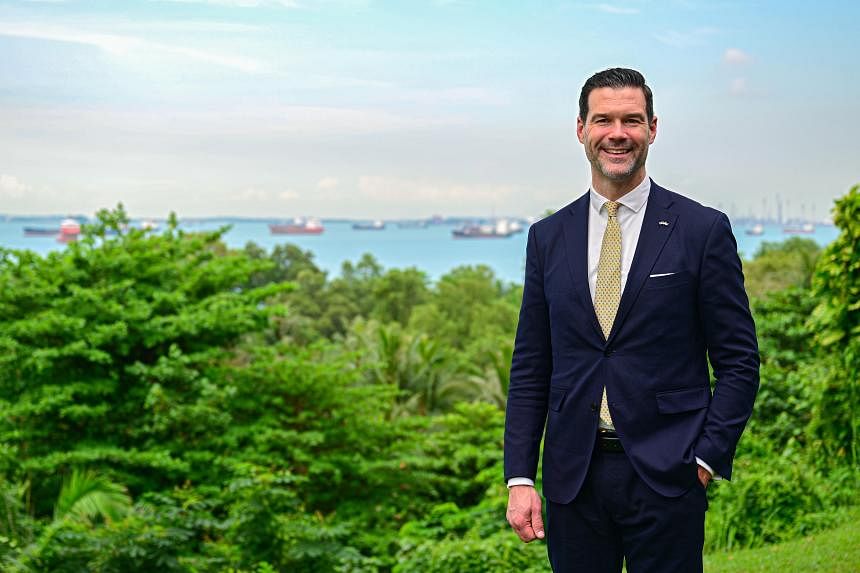SINGAPORE – Sweden announced a new trade and investment strategy for South-east Asia as part of its plans to deepen cooperation with like-minded partners, including Singapore.
“We will be focusing even more on this part of the world, particularly when it comes to green transition and digitalisation, so there is a perfect fit,” said Mr Johan Forssell, Sweden’s Minister for International Development Cooperation and Foreign Trade.
He was referring to Swedish expertise in areas sought after by South-east Asian countries to meet targets for green buildings and the digital economy.
In Singapore on Dec 5 to attend the Sweden Indo-Pacific Business Summit, Mr Forssell led a business delegation of 51 Swedish companies keen to expand their footprint in the region. They included fashion giant H&M Group, tech firm Ericsson, carmaker Volvo and medical tech company Getinge.
Bilateral trade between Sweden and South-east Asia grew from 21 billion kronor (S$2.7 billion) in 2017 to 34 billion kronor in 2022. Sweden’s imports and exports to Singapore also increased to 4.04 million kronor in 2022, up from 2.92 million kronor in 2018.
Asked if the focus on South-east Asia is a response to the intensifying rivalry between the United States and China, Mr Forssell said the country is “more driven by the fact that this is the region where most things are happening nowadays”.
Swedish companies also tell him that they see great potential in South-east Asia, added Mr Forssell, who is on a two-day visit here.
“We are just like you. We are driven by doing a lot of trade, we believe in having more free trade agreements, more of a rules-based world order and doing business between like-minded nations,” he told The Straits Times, referring to Singapore. “So this is more testimony to the importance of the region and the economic potential that we see here.”
A Volvo subsidiary, for one, launched its first fully electric construction machines in South-east Asia at a gala event in Singapore in June, with plans to sell them to the wider regional market. H&M, meanwhile, is working with Singapore’s DBS Bank on financing solutions that help garment factories improve their energy efficiency.
Mr Heng Swee Keat, Singapore’s Deputy Prime Minister and Coordinating Minister for Economic Policies, said the Republic is keen to work with Sweden to develop sustainability-related capabilities in Singapore and widen the range of sustainable finance solutions for the Asian market.
Speaking at the Sweden Indo-Pacific Business Summit, Mr Heng added that Singapore’s Nanyang Technological University will collaborate with Sweden’s Stockholm School of Economics (SSE) on an executive Master of Science course in sustainability management.
This will help to meet growing industry needs for such expertise.
Each year, 300 to 400 Swedish students come to Singapore on exchange programmes, according to the Swedish Embassy here. This is out of 1,000 Swedish exchange students in South-east Asia.
“These exchange students are probably tomorrow’s business leaders,” said Mr Forssell, who graduated from SSE and has friends there who spent six months in Singapore as exchange students.
“Some of them might even turn up in politics, just like I did. So from that perspective, it is important to be here to fully understand the environment and, very early on in their careers, take into account all the business opportunities that are here in Singapore and the region as a whole.”


